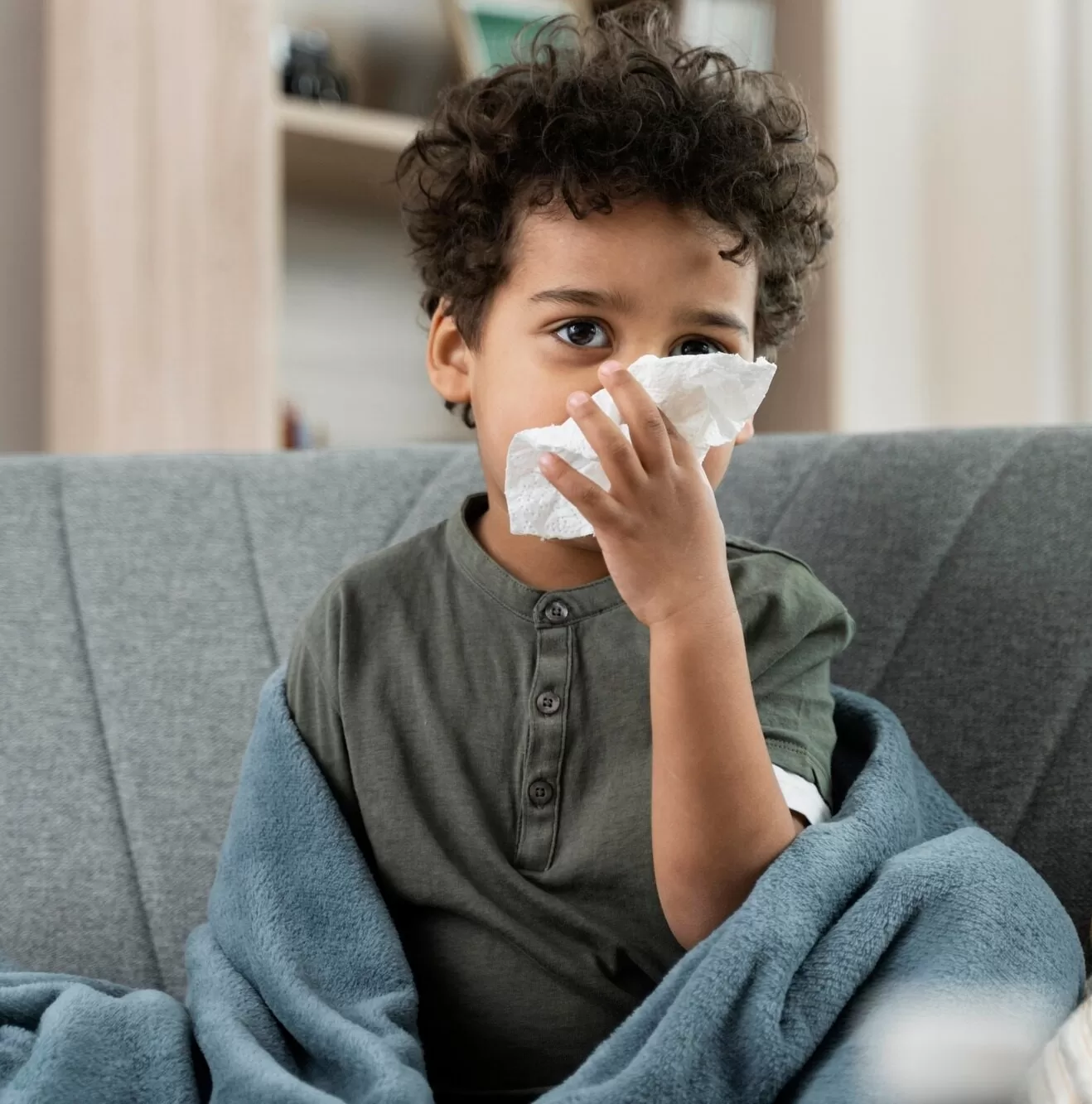Winter is a season of cozy sweaters, hot beverages, and festive cheer. However, it is also a time when children are more susceptible to viral infections like the common cold and influenza. These illnesses are not just seasonal annoyances but can cause significant discomfort and complications in children if not managed appropriately.
Why Are Viral Infections More Prevalent in Winter?
Winter conditions create the perfect environment for viruses to thrive. Here’s why:
- Weakened Immunity: Cold weather can suppress the immune system, making it harder for the body to fight off infections.
- Indoor Interactions: Increased time spent indoors leads to closer contact with others, facilitating the spread of viruses.
- Low Humidity: Dry air in winter can dry out nasal passages, reducing their ability to block pathogens.
Understanding the Common Cold and Influenza
Both the common cold and influenza are caused by viruses, but they differ in severity and symptoms.
The Common Cold
- Causes: Over 200 types of viruses, with rhinoviruses being the most common.
- Symptoms: Runny nose, sore throat, mild fever, cough, and sneezing.
- Duration: Typically 7–10 days.
- Impact: Though mild, it can make children irritable and disrupt daily routines.
Influenza (Flu)
- Causes: Influenza viruses (Types A and B).
- Symptoms: Sudden high fever, chills, muscle aches, fatigue, sore throat, and cough.
- Duration: 1–2 weeks.
- Impact: Can lead to severe complications like pneumonia, especially in younger children or those with weakened immunity.
Prevention Tips for Parents
Protecting your child from these infections is essential. Here are some practical measures:
- Vaccination: Annual flu shots are highly effective in reducing the risk of severe influenza.
- Good Hygiene: Teach your child to wash their hands regularly with soap and water.
- Avoid Close Contact: Keep your child away from sick individuals.
- Healthy Diet: A balanced diet with fruits, vegetables, and immunity-boosting foods can strengthen their defenses.
- Adequate Sleep: Proper rest ensures the immune system functions optimally.
- Hydration: Encourage drinking water to keep mucous membranes moist and effective in trapping viruses.
- Indoor Ventilation: Maintain good airflow in indoor spaces to reduce the concentration of airborne viruses.
When to See a Pediatrician
While most colds and flu cases can be managed at home, seek medical advice if:
- Your child has difficulty breathing or persistent wheezing.
- High fever lasts more than three days.
- Symptoms worsen instead of improving.
- There are signs of dehydration, such as decreased urination or dry mouth.
How Currae Hospital’s Pediatrics Department Can Help
At Currae Hospital, Thane, our Pediatrics Department is equipped with expert pediatricians and advanced care facilities to ensure your child’s health and well-being. Whether it’s routine vaccinations, preventive advice, or treatment for viral infections, our team is here to support you through every step of your parenting journey.
Conclusion
Winter viral infections like the common cold and influenza are inevitable, but with proper precautions and timely care, their impact can be minimized. Currae Hospital’s Pediatrics Department is committed to providing comprehensive care for your little ones, ensuring they stay healthy and happy through the winter months.
For expert pediatric care, schedule an appointment with us today!





